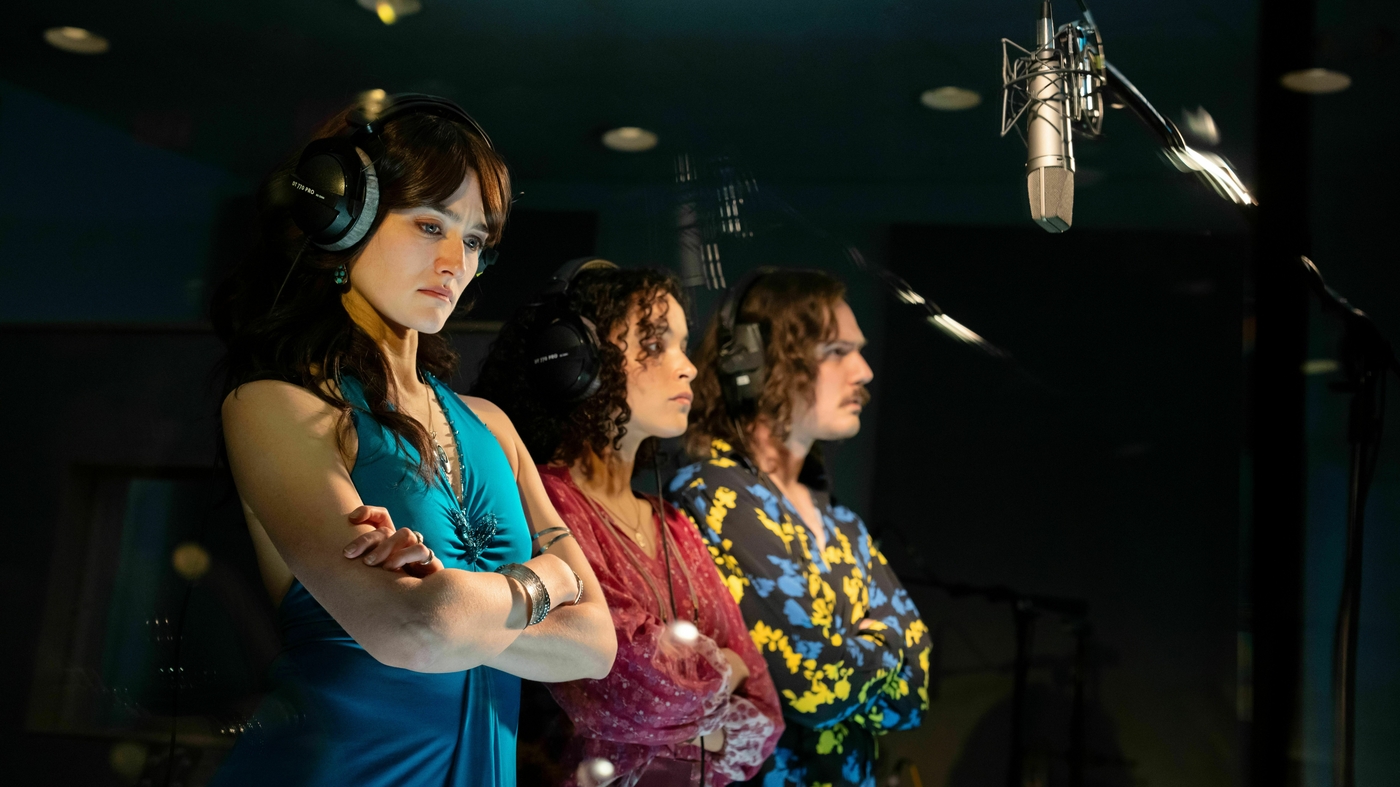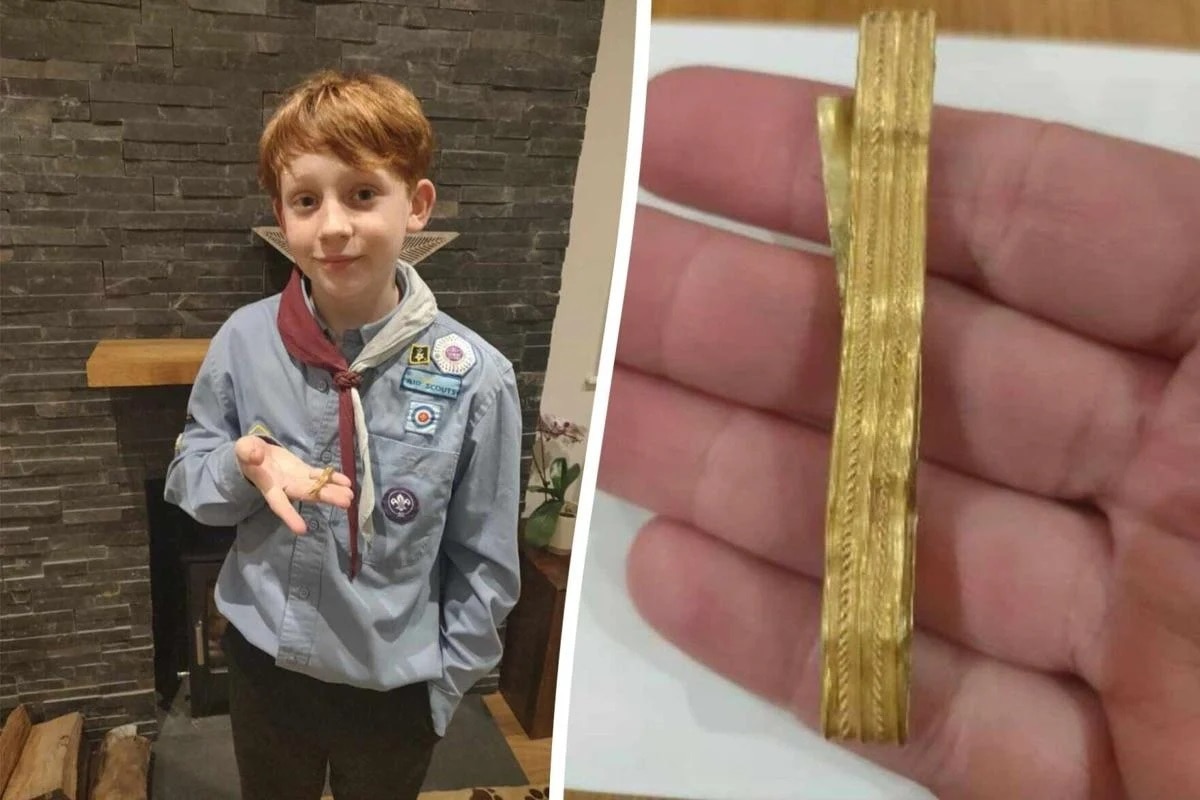
[Editor’s Note: The following review contains spoilers for “Better Call Saul” Season 6, Episode 5, “Black and Blue.”]
One chair isn’t going to cut it.
Though, to be fair to Kim (Rhea Seehorn), it’s the kind of thing that’s worked in the past for her and Jimmy (Bob Odenkirk). The name changes, the career changes, and the last-second strokes of genius have all been temporary fixes to head off the worst that’s coming their way.
After plenty of moments tracking Jimmy lying awake, unsure of what’s coming next, “Better Call Saul” shows Kim pacing around the living room, hoping that a 2 AM cigarette will do more than the piece of furniture shoved in the door to fend off anyone seeking revenge. Jimmy may be the one who’s already changed his name, but Kim is the one who’s fully processing the fundamental change that his choice to be a “friend of the cartel” is going to have on their lives.
A few scenes later, not long after director Melissa Bernstein frames her face in a cup of coffee during a catch-up chat, Kim is doing what every character in “Black and Blue” is being forced to do: confront their own worst tendencies head-on.
Part of that for Kim comes from a nagging bit of self-doubt. As she listens to glowing words from former paralegal Viola (Keiko Agena) about Kim being a kind of legal compass, you can see her reinvigorated public defender attitude slowly start to erode bit by bit. She’s still giving Jimmy career advice and is still on board for the partnership the two of them have together — her smile when she sees him drive into the parking lot below their balcony! — but without saying it explicitly, this seems like Kim questioning whether she’s still able to accept that kind of praise from a colleague.
The blows that visit Jimmy here are far more literal. Howard (Patrick Fabian) pieces together the source of his recent misfortunes and decides the best way to square things up is to, well, square things up. When Jimmy answers a bogus house call — one made entirely believable by the line of clients that continue to stretch out the door and around the corner at the new Saul Goodman HQ — Howard is standing ringside, ready to make their metaphorical back-and-forth a far more literal one.

“Better Call Saul”
Greg Lewis/AMC/Sony Pictures Television
Once the two get wrapped and gloved and shorts’ed, Bernstein finds an interesting balance in just how effective this cathartic fight is for each man. These are not two elite-level fighters, but they’re certainly fueled by a desire to be able to claim victory in a part of this fight that one of them didn’t even know he was a part of until recently. (Fabian has been so good this season — that “Cancel my week” has all the sharpness of a man equally committed to revenge and maintaining his composure.) They trade some combos and right hooks, but it’s Howard who takes the round, leaving Jimmy with a black eye.
For Gus, his self-reflection here comes in the form of the burdens he’s placed on himself. There’s another look at the ankle holster and another prolonged tracking shot following him, this time through the above-ground domain of his Pollos Hermanos empire. One thing that came from last week’s glimpses into his Fortress of Surveillitude is the idea that his constant upright posture is the product of wanting to project an air of confidence and control, but also of wearing a bulletproof vest at all times.
We’ve seen him snap into Kindly Chicken Restaurant Manager mode before. Seeing him snap out of it is more rare. Especially when compared to someone in the same episode who has a politician’s ability to sway concerned clients and challenge someone who threatened him to a literal fistfight, that makes Gus’ toothbrush grout cleaning all the more humbling. Although, how humble do you have to be when you have the makings of a region-dominating meth lab being custom built for you?
The biggest “Better Call Saul” curveball this week is that the object of Gus’ obsession is in the middle of global trip that’s far more “Before Sunrise” than “Breaking Bad.” For the second straight episode, we have someone going about their day, trying to enjoy a solitary beverage, when a man appears to immediately change their life. While Mike’s warning to Kim may have come after him canvassing a diner unnoticed (here’s Seehorn talking about how they structured that scene), Lalo (Tony Dalton) does feel the world’s most dangerous magician when he materializes in a German lounge, across the bar from Margarethe Ziegler (Andrea Sooch).
It’s a function of the show’s extended runway that Lalo’s fixation on Werner Ziegler’s secret project can effectively lay dormant for an entire season before popping up again here. “Better Call Saul” has never lost sight of what Lalo is capable of, and that goes for charisma as much as bloodshed. Even as these two new acquaintances spend an evening out together, Dalton doesn’t have to drop the charm offensive for the audience to be reminded of his ruthlessness with each part of the truth he leaves out.

“Better Call Saul”
Greg Lewis/AMC/Sony Pictures Television
And that’s before he sneaks his way into the Ziegler household the following morning, armed with a silencer should his fact-finding mission go sideways. (Gus might not be able to hop a front gate the way Lalo can, but there’s an exactitude to how each man goes about their business that really makes them ideal foes.) There’s something to how “Better Call Saul” and “Breaking Bad” have taught audiences how to expect the worst, to the point where Margarethe coming back to their house (complete with an interior of clean lines an engineer would certainly appreciate) feels like a death sentence. Yet, as she and her long-haired dachshund both try to track down the person they both suspect might be lingering upstairs, all they eventually find is the faint trace of a ghost.
Maybe there’s a method to Lalo’s mercy rather than a change of heart brought about by the previous night. But whatever the reason, he bolts through the window without murdering either of the living beings inside the house. It’s a point of comparison to Jimmy’s moments of hesitation throughout the season so far that take him the opposite direction. He’s seconds away from walking out on Howard’s sparring invitation, not to mention seconds away from ditching the country club in a move that might have nipped this whole revenge plot in the bud. It’s strange to see a situation where Lalo takes the least drastic course of action, while his former lawyer rejects it when given a comparable chance.
And now, Jimmy’s troubles has drawn in the attention of a private investigator. The odds are good that the guy in the trailing car is going to stumble on some cartel dealings, the kind of revelation that has grave consequences for the people doing the finding and the hiring. The latest element of this slow-moving tragedy in the making is that the combined vindictive natures of Jimmy and Howard are going to be like a Large Hadron Collider of consequences, with a resulting explosion that sure looks like it’s heading for far more collateral damage than either of them realize.
The sad thing is that it’s already happening. Where Cliff Main (Ed Begley, Jr.) started out as a useful pawn to frame Howard, each new story about his son’s substance abuse problems become a vector for more family sorrow and guilt. Gus’ dreams of an underground superlab put Werner in literal crosshairs, condemning the wife of the happy-go-lucky engineer to a life without answers as to why her husband’s story of “heroism” is oddly incomplete. This show has been painting a painful endgame for a while. Watching all its players realize just how much it will cost them (and everyone else) continues to be one of the more gut-wrenching parts of it all.
Grade: A-
“Better Call Saul” airs Monday nights at 9 p.m. on AMC and is available on AMC+.











































































